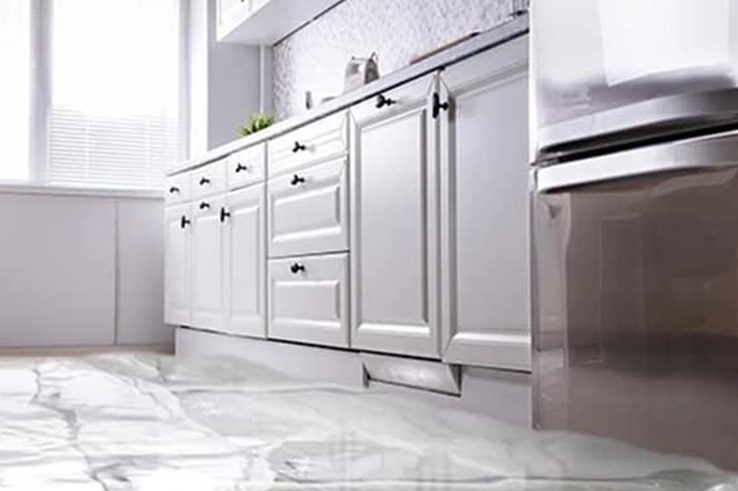
A leaking refrigerator can turn your kitchen into a slippery mess fast. It’s frustrating to wipe up puddles every day, especially when you’re not sure what’s causing them. The good news is most leaks come from simple issues you can fix right at home with a few quick checks.
Understanding why your fridge leaks helps you fix the problem before it becomes worse. From clogged drains to loose water lines, many small problems can lead to water on the floor. By following a few easy steps, you can stop the leak and keep your kitchen safe, clean, and dry.
Find the Source of the Leak
If you’re wondering how to stop your refrigerator from leaking water on the kitchen floor, the first step is to identify the source of the leak. Knowing exactly where the water is coming from makes it much easier to address the problem quickly.
Many fridge leaks are simple to diagnose once you know what to check, or you can rely on professional refrigerator repair barrie for a fast and reliable fix.
Check Under and Around the Refrigerator
Start by pulling your fridge slightly away from the wall. Look underneath and around the base for any puddles or wet spots. Sometimes water collects at the back near the compressor, or it might be pooling in front if the fridge isn’t level. Make sure the floor is completely dry before checking again to see fresh leaks.
Inspect the Door Seals
The rubber seals around the fridge doors are another common culprit. If they are cracked, dirty, or not sealing properly, water can drip out from condensation inside the fridge. Run your fingers along the seals and check for gaps. Cleaning the seals with warm water and making sure they close tightly can stop minor leaks immediately.
Look at the Water Line and Valve
If your refrigerator has a water dispenser or ice maker, the water line could be loose, cracked, or clogged. Inspect the tube that connects to your fridge and the valve behind it. A tiny leak in these parts can slowly drip water onto your kitchen floor. Tightening loose connections or replacing damaged lines can fix this type of leak easily.
Check Inside the Fridge
Sometimes the leak isn’t obvious outside. Open the fridge and look for puddles inside or ice buildup in the freezer. A clogged defrost drain or overflowing drip pan can cause water to escape onto the floor. Cleaning these areas often solves the problem.
Fix Common Causes of Refrigerator Leaks
If you want to stop your refrigerator from leaking water on the kitchen floor, the next step is to fix the common causes. Many leaks are easy to repair at home without calling a professional. By tackling these issues, you can save time and prevent water damage in your kitchen.
Unclog a Blocked Defrost Drain
A clogged defrost drain is one of the most frequent reasons a fridge leaks. When the drain gets blocked with food particles or ice, water from the defrost cycle can’t flow into the drip pan. This causes it to pool at the bottom of your fridge. You can fix this by locating the drain at the back or bottom of your fridge and gently clearing it with warm water or a soft brush.
Level the Refrigerator
If your fridge isn’t level, water can’t flow properly into the drip pan, causing it to spill onto the floor. Use a level tool and adjust the front or back legs until the fridge sits evenly. Even a small tilt can make a big difference in preventing leaks.
Replace Cracked or Loose Water Lines
For refrigerators with water dispensers or ice makers, leaks often come from cracked or loose water lines. Inspect the lines behind the fridge and tighten any connections. If you see cracks or splits, replacing the line is the safest way to stop water from dripping onto your floor.
Clean Dirty Door Gaskets
Door gaskets, the rubber seals around your fridge doors, can accumulate dirt or get worn over time. This can let warm air in, causing condensation inside the fridge that drips out. Wipe the gaskets with warm, soapy water and check that the doors close tightly. If the gasket is damaged, replacing it will prevent leaks.
Simple Maintenance to Prevent Future Leaks
Once you’ve fixed the immediate leak, it’s important to take steps to prevent your refrigerator from leaking water on the kitchen floor again. Simple, regular maintenance keeps your fridge running smoothly and avoids messy surprises.
Clean the Fridge Coils Regularly
Dust and dirt on the fridge coils can make the appliance work harder than necessary. This can lead to excess condensation and water pooling. Every six months, unplug the fridge and gently clean the coils at the back or underneath with a brush or vacuum. Clean coils help the fridge run efficiently and reduce leaks.
Keep the Drain Pan Clean and Secure
The drain pan collects water that drips from the defrost cycle. Over time, it can become dirty, cracked, or loose. Check the pan regularly, clean it with warm water, and make sure it sits properly. A clean, well-placed pan catches water before it reaches your kitchen floor.
Check Temperature Settings
If your fridge is too cold or too warm, condensation can build up, causing water to leak. Keep the fridge between 37-40°F and the freezer around 0°F. Adjusting the temperature can prevent ice buildup and excess water from dripping out.
Replace Water Filters on Time
A clogged or old water filter can slow the flow of water, sometimes causing leaks in fridges with dispensers or ice makers. Check your manufacturer’s instructions and replace the filter as recommended. This keeps water flowing correctly and prevents leaks from forming.
When to Call a Professional
Sometimes, despite your best efforts, your refrigerator keeps leaking water on the kitchen floor. Knowing when to call a professional can save you time, frustration, and potential damage to your home.
Leaks Persist After Basic Fixes
If you’ve tried clearing the defrost drain, leveling the fridge, checking water lines, and cleaning the gaskets, but water still appears, it’s time to call an expert. Persistent leaks may indicate a deeper problem that requires professional tools and experience to fix.
Water Comes from Inside the Fridge Walls
Some leaks happen inside the walls of the fridge, where you can’t see them. This could be due to broken internal components or hidden clogs. A professional technician can safely access these areas and repair the issue without causing further damage.
Freezer Keeps Icing Up
Continuous ice buildup in the freezer can block drains and cause water to overflow onto the floor. If manual defrosting doesn’t solve the problem, a technician can check the defrost system, thermostat, and sensors to stop the leaks permanently.
Electrical Parts Feel Warm or Smell Odd
Any sign of warmth, burning smell, or unusual sounds around electrical components is a warning. Water leaks near wiring or compressors can be dangerous. A professional can inspect and repair these safely to prevent accidents or costly damage.
Calling a professional when needed ensures your fridge stays safe, efficient, and leak-free. Don’t wait until a small drip becomes a big problem; expert help can protect your kitchen and give you peace of mind.
Conclusion
Stopping your refrigerator from leaking water doesn’t have to be stressful. Once you know what to look for, you can fix most problems quickly and prevent them from returning. Regular cleaning, simple checks, and basic upkeep can save you time and money. If the leak continues, calling a professional is the best way to protect your fridge and your home.
Media Contact
Company Name: Applianceforever
Email: Send Email
Country: United States
Website: https://applianceforever.ca







